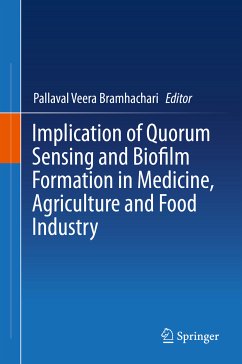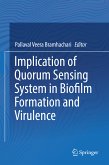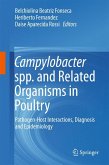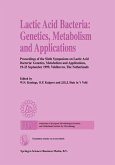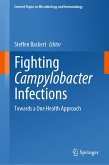This book also describes the role of quorum sensing in survival behavior and antibiotic resistance in bacteria. Further, it reviews the major role played by quorum sensing in food spoilage, biofilm formation, and food-related pathogenesis. It also explores the methods for the detection and quantification of quorum sensing signals. It also presents antimicrobial and anti-quorum sensing activities of medicinal plants. Finally, the book elucidates a comprehensive yet representative description of basic and applied aspects of quorum sensing inhibitors.
This book serves an ideal guide for researchers to understand the implications of quorum sensing in the food industry, medicine, and agriculture.
Dieser Download kann aus rechtlichen Gründen nur mit Rechnungsadresse in A, B, BG, CY, CZ, D, DK, EW, E, FIN, F, GR, HR, H, IRL, I, LT, L, LR, M, NL, PL, P, R, S, SLO, SK ausgeliefert werden.

